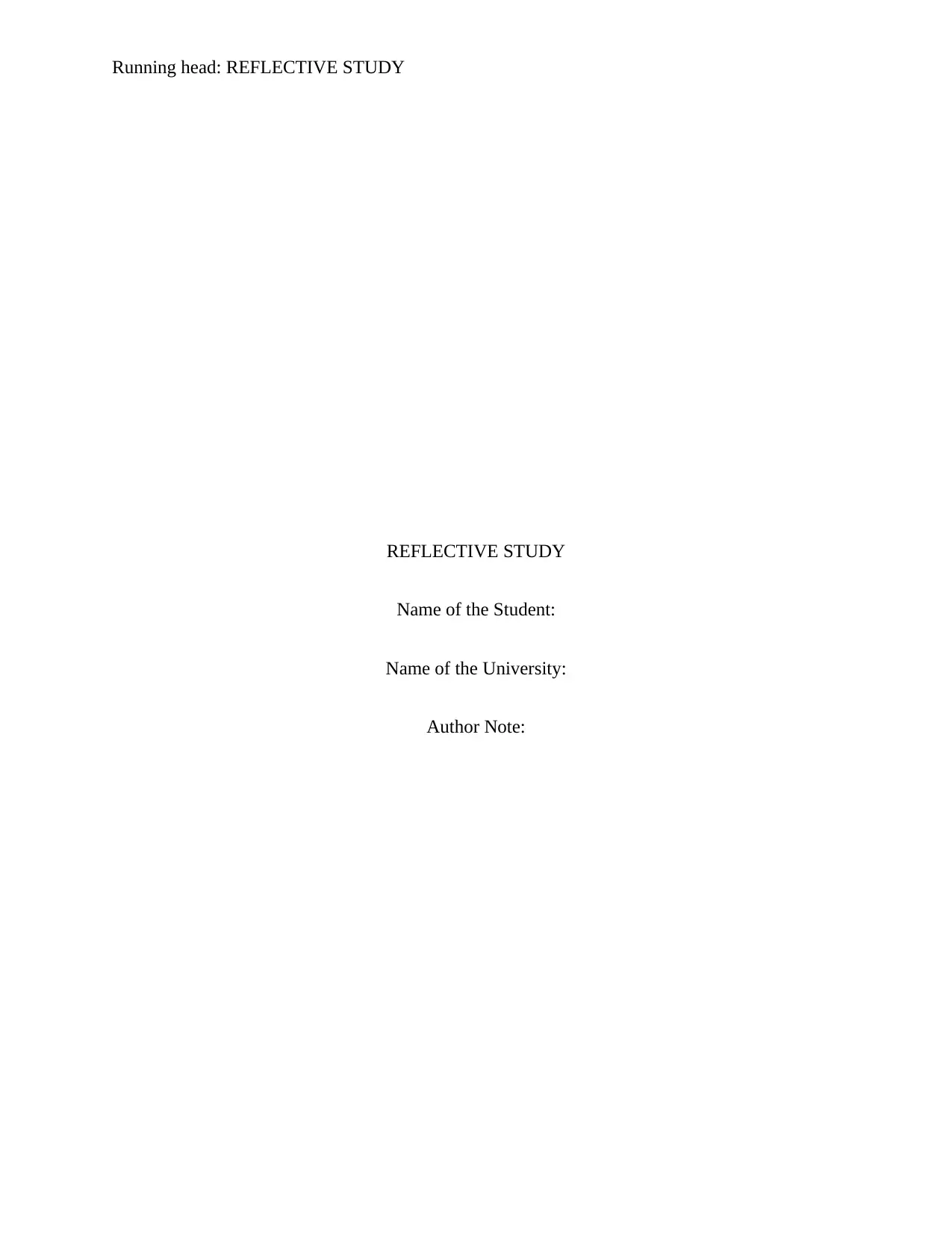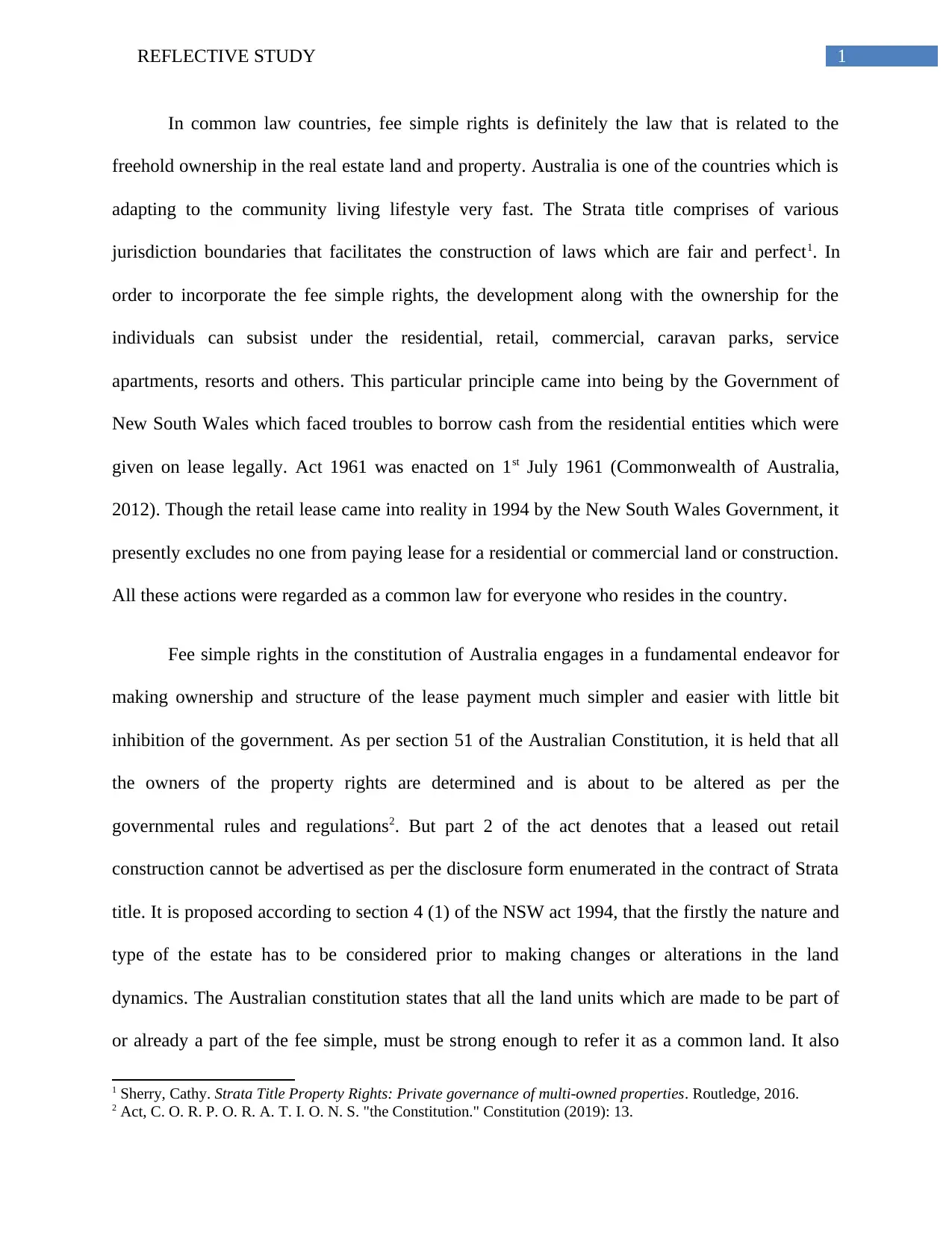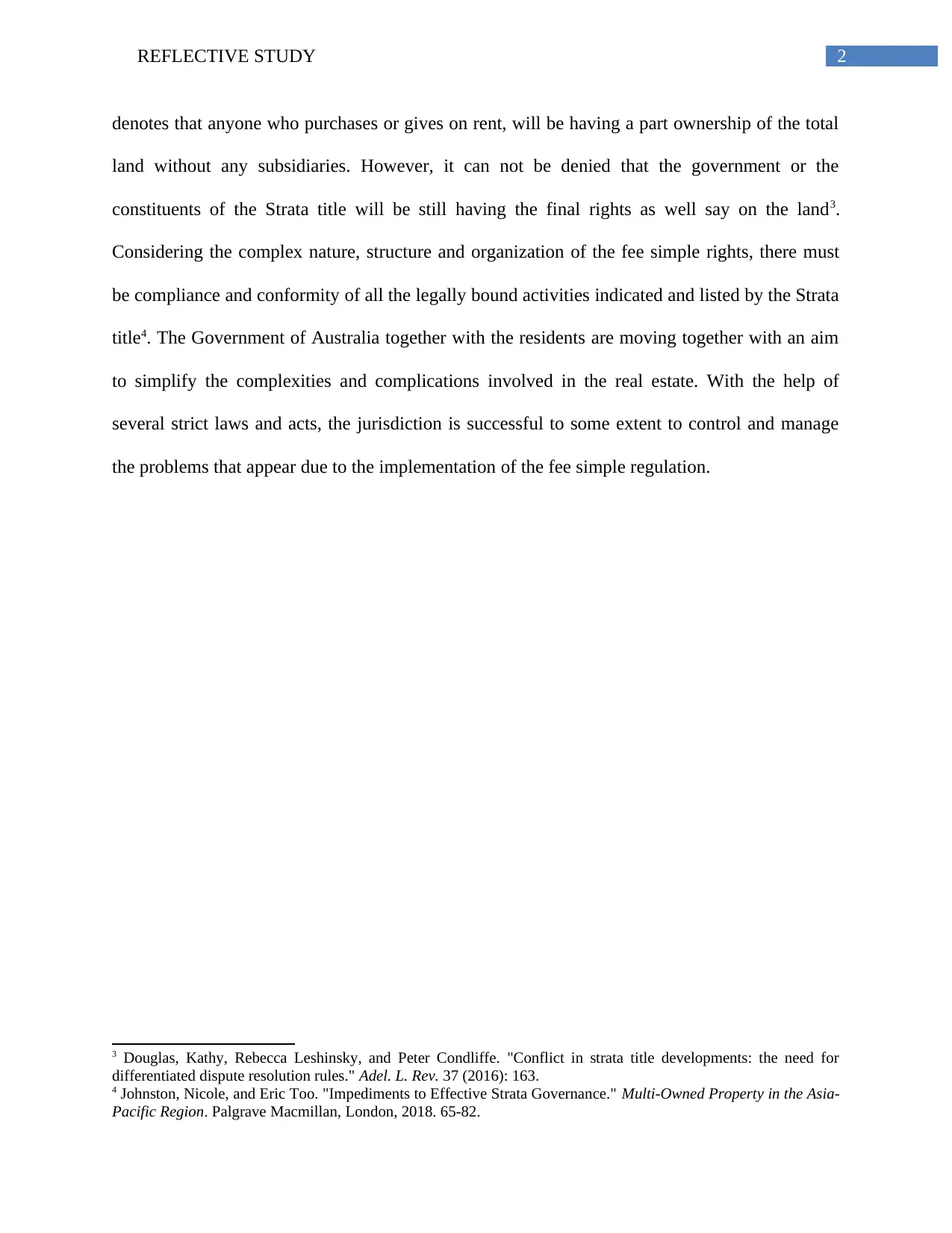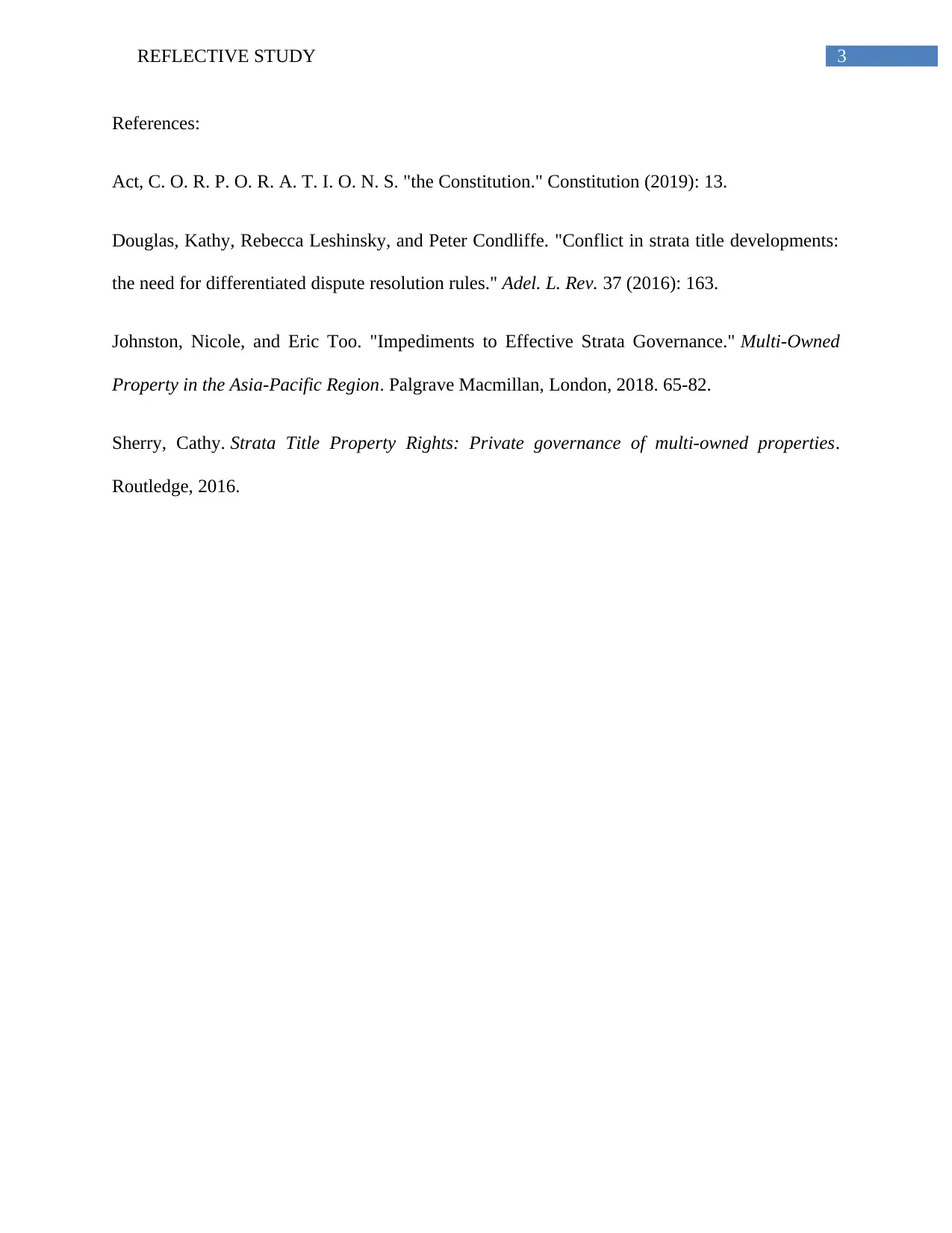Reflective Study: Fee Simple Rights in Australia - A Legal Analysis
VerifiedAdded on 2022/11/25
|4
|669
|76
Report
AI Summary
This reflective study explores the concept of fee simple rights within the context of Australian property law. It examines the evolution of these rights, particularly focusing on the impact of the Strata title system and relevant legislation, such as the Act 1961 and the Retail Leases Act 1994. The report analyzes the interplay between fee simple ownership, government regulations, and the rights of property owners, highlighting the complexities and challenges involved in managing real estate. It delves into how the Australian Constitution, specifically section 51, influences property rights and the limitations imposed on these rights, as well as the role of common law in shaping property ownership. The study also touches upon the complexities of Strata title developments, the role of government in regulating property, and the ongoing efforts to simplify property laws for both residents and developers, referencing key legal cases and scholarly articles to support its arguments.
1 out of 4








![[object Object]](/_next/static/media/star-bottom.7253800d.svg)